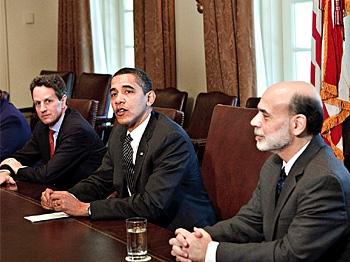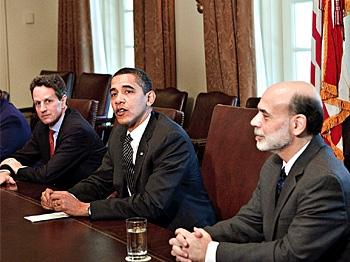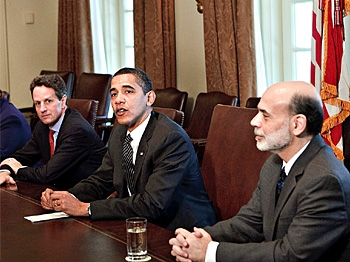NEW YORK—United States Treasury Secretary Timothy Geithner, in comments to lawmakers Thursday March 26, detailed sweeping changes that the Obama administration is making to fix the financial system and increase government oversight and regulation of the market.
Geithner, in his testimony to the House Financial Services Committee, said that “new rules of the game” were needed to comprehensively fix the financial system. He said that the rules had to be “simpler” and also “effectively enforced.”
“Over the past 18 months, we have faced the most severe global financial crisis in generations,” Geithner said in his initial comments.
The rules being put in place target the risk-taking among banks and hedge funds that contributed to the global credit crisis and accelerated it.
Geithner outlined a proposal for establishing an agency “with responsibility for systemic stability over the major institutions.” Such an agency would allow the government to look into how financial companies work. Most such institutions are currently outside federal supervision.
Among the other proposals Geithner outlined were enforcing conservative capital requirements for financial institutions, as well as forcing sizable investment companies to register with the Securites and Exchange Commission (SEC).
Geithner also proposed frameworks for regulating private capital—such as hedge funds, private equities and venture capital—as well as financial derivate products.
Private capital and the more exotic versions of financial derivates, such as credit-default swaps, have so far been mostly outside the scope of government regulation.
Geithner stressed that it was critical to implement these measures in a timely manner.
Geithner, in his testimony to the House Financial Services Committee, said that “new rules of the game” were needed to comprehensively fix the financial system. He said that the rules had to be “simpler” and also “effectively enforced.”
“Over the past 18 months, we have faced the most severe global financial crisis in generations,” Geithner said in his initial comments.
The rules being put in place target the risk-taking among banks and hedge funds that contributed to the global credit crisis and accelerated it.
Geithner outlined a proposal for establishing an agency “with responsibility for systemic stability over the major institutions.” Such an agency would allow the government to look into how financial companies work. Most such institutions are currently outside federal supervision.
Among the other proposals Geithner outlined were enforcing conservative capital requirements for financial institutions, as well as forcing sizable investment companies to register with the Securites and Exchange Commission (SEC).
Geithner also proposed frameworks for regulating private capital—such as hedge funds, private equities and venture capital—as well as financial derivate products.
Private capital and the more exotic versions of financial derivates, such as credit-default swaps, have so far been mostly outside the scope of government regulation.
Geithner stressed that it was critical to implement these measures in a timely manner.






